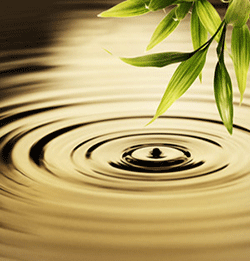Restoring The Rhythm: Women's Health
/Women's health is a topic I'm extremely passionate about because so many women suffer from ailments that acupuncture and herbal medicine are very effective at treating. It never ceases to amaze me how many women have issues with their menstrual cycle. I've continually witnessed patients, friends, and family members needlessly suffer from imbalances in their cycles. What concerns me the most is that many women are at a loss when it comes to knowing what to do about their symptoms.They often feel hormone therapy (eg. the birth control pill) or 'just living with it' are their only options.
I'm here to tell you there are natural remedies available to you. If you are skipping periods, having painful periods, heavy periods, or experiencing severe emotional/physical changes linked to your period, acupuncture and herbal medicine can help you.
The textbook menstrual cycle is defined as occurring every 28 days, and it lasts an average of 4 days with medium flow. Of course, these 'norms' vary greatly from woman to woman, but you should have a regular rhythm to your periods. Ideally, they should not be too heavy or light, and they should be free of clots and pain. In Oriental Medicine blood is very important to a woman's health. It is linked to the woman's essence (or jing). Persistent loss of too much blood during the menses (excessive bleeding and/or length of cycle) is viewed as something that leads to depletion of vitality and can cause premature aging. Alternatively, skipping periods or having very little flow is not optimal either.
Being a proponent of integrative medicine, I encourage you to see your gynecologist if you are experiencing changes in your cycle: spotting, excessive bleeding, pain, irregularity, etc. But once you've been checked by your gynecologist it's important to know you have options when it comes to regulating and maintaining a healthy cycle.
How Does Oriental Medicine View The Menstrual Cycle?
As acupuncturists we take into consideration the Western medicine perspective on the menstrual cycle, but we also look at it from the fundamental concepts of our medicine: the yin (pre-ovulation phase) and yang (post-ovulation phase). The cycle can be broken down into 4-5 phases: period, post period, ovulation, post-ovulation, pre-period. In certain phases we look to nourish and build the body. In other phases we look to move qi/blood and help regulate body temperature. In addition to looking at the phases of the cycle, we look at the body as a whole in order to help determine the underlying cause of the imbalance. We may ask you questions about your emotions, digestion, stress levels, and even sleep patterns to determine proper diagnosis and treatment.
Getting to the root cause of the problem is key, and each patient is treated according to her unique presentation. What I love about acupuncture treatments and herbal remedies is that they are tailored to the individual patient. For example, if someone presents with painful periods (dysmenorrhea) there is not just one 'cookie cutter' reason. There are multiple reasons this may be occurring. A few possibilities include qi stagnation (energy not moving), blood stagnation (blood not flowing freely), cold-damp stagnation (internal cold causing lack of movement), or internal cold from deficiency (body lacking ability to generate enough heat). Once the pattern is diagnosed, appropriate herbal formulas and acupuncture points can be prescribed.
If you are experiencing irregularities in your cycle it's best to take action sooner rather than later--especially if you are in child bearing years. The sooner you begin acupuncture and herbal therapy the easier it will be to restore balance to your body. Often times, women will notice symptoms but will wait until they worsen to seek help. If you feel like the rhythm of your cycle is off, seek out your local acupuncturist for guidance and treatment.



